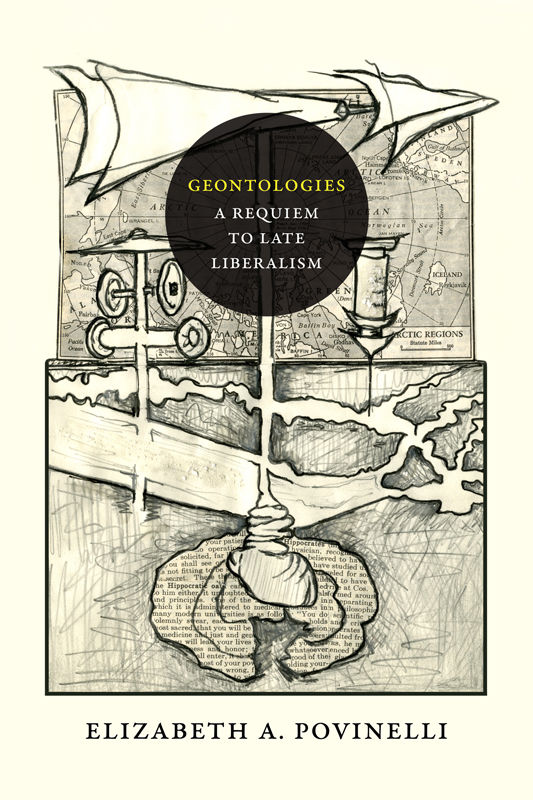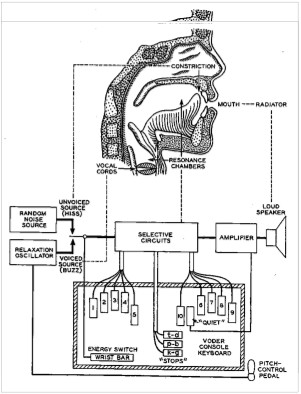Cultural Anthropology: Lessons for Liberalism from the “Illiberal East” (2018)
Filed under journal | Tags: · anthropology, central europe, conspiracy, democracy, east-central europe, eastern europe, fake news, geopolitics, illiberalism, liberalism, politics, populism

“The cumulative effects of Brexit, the resurgence of populist politics in Europe, and the election of Donald Trump as president of the United States have given rise to the perception that Western liberal democracies are undergoing profound change, if not a bona fide crisis. Moreover, there is a sense that it is the political liberalism of the post–Cold War period—rather than its far less popular companion ideology of neoliberalism—that finds itself in disarray. As scholars and commentators rummage through their intellectual toolboxes for explanatory frameworks, many are turning to (post)socialist histories and experiences as heuristic devices for making sense of the upheavals in Western politics. In this Hot Spots series, we suggest that the postsocialist transition, as both discursive space and set of practices that attempted to make capitalists out of socialists and liberals out of totalitarians, renders the former socialist world a rich site for understanding the current shifts in the Western political landscape. We aim to make sense of this landscape in a way that is attuned to both long-term processes and to the state of emergency reinforced with each new wave of current events. Even though the ground appears to be constantly shifting beneath our feet, these essays insist that detailed, historically and geopolitically sensitive analysis of actually existing post–Cold War liberalisms is one key approach for making sense of the present.”
Edited by Dace Dzenovska and Larisa Kurtović
Publisher Society for Cultural Anthropology, Apr 2018
Hot Spots series
ISSN 1548-1360
Elizabeth A. Povinelli: Geontologies: A Requiem to Late Liberalism (2016)
Filed under book | Tags: · anthropocene, assemblage, being, biopolitics, capital, difference, ethnology, geology, geontopower, governance, indigenous peoples, liberalism, life, ontology, power

“In Geontologies Elizabeth A. Povinelli continues her project of mapping the current conditions of late liberalism by offering a bold retheorization of power. Finding Foucauldian biopolitics unable to adequately reveal contemporary mechanisms of power and governance, Povinelli describes a mode of power she calls geontopower, which operates through the regulation of the distinction between Life and Nonlife and the figures of the Desert, the Animist, and the Virus. Geontologies examines this formation of power from the perspective of Indigenous Australian maneuvers against the settler state. And it probes how our contemporary critical languages—anthropogenic climate change, plasticity, new materialism, antinormativity—often unwittingly transform their struggles against geontopower into a deeper entwinement within it. A woman who became a river, a snakelike entity who spawns the fog, plesiosaurus fossils and vast networks of rock weirs: in asking how these different forms of existence refuse incorporation into the vocabularies of Western theory Povinelli provides a revelatory new way to understand a form of power long self-evident in certain regimes of settler late liberalism but now becoming visible much further beyond.”
Publisher Duke University Press, 2016
ISBN 9780822362111, 0822362112
xii+218 pages
Interview with author: Mathew Coleman and Kathryn Yusoff (Theory, Culture & Society, 2017).
Reviews: Shela Sheikh (Avery Review, 2017), Robin Wright (Society+Space, 2017), Eve Vincent (Australian Aboriginal Studies, 2017), Timothy Neale (Australian Journal of Anthropology, 2017), Andrea Muehlebach (Anthropological Quarterly, 2018), Jean-Thomas Tremblay (Critical Inquiry, 2018), Elizabeth R Johnson, Garnet Kindervater, Zoe Todd, Kathryn Yusoff, Keith Woodward (with author’s response, EPC: Politics and Space, 2019).
Comment (0)Bernard Dionysus Geoghegan: The Cybernetic Apparatus: Media, Liberalism, and the Reform of the Human Sciences (2012)
Filed under thesis | Tags: · cybernetics, history of technology, liberalism, linguistics, structuralism, technology

“The Cybernetic Apparatus examines efforts to reform the human sciences through new forms of technical media. It demonstrates how 19th-century political ideals shaped mid-20th-century programs for cybernetic research and global science sponsored by the Rockefeller Foundation. Through archival research and textual analysis, it reconstructs how and why new media, especially digital technologies, were understood as part of a neutral and impartial apparatus for transcending disciplinary, ethnic, regional, and economic differences. The result is a new account of the role of new media technologies in facilitating international and interdisciplinary collaboration (and critique) in the latter half of the twentieth century.
Chapter one examines how political conceptions of communications and technology in the United States in the nineteenth century conditioned the understanding and deployment of media in the twentieth century, arguing that American liberals conceived of technical media as part of a neutral apparatus for overcoming ethnic, geographic, and economic difference in the rapidly expanding nation. Chapter two examines the development of new media instruments as technologies for reforming the natural and human sciences from the 1910s through the 1940s, with particular attention to programs administered by the Rockefeller Foundation. Chapters three and four examine the rise, in the 1940s and 1950s, of cybernetics and information theory as an ideal of scientific neutrality and political orderliness. These chapters demonstrate how programs sponsored by the Rockefeller Foundation, MIT, and other institutions shaped linguist Roman Jakobson’s and anthropologist Claude Lévi-Strauss’s efforts to redefine their fields as communication sciences. Chapter five considers how critics of cybernetics, including Noam Chomsky, Claude Shannon, and Roland Barthes, critically re-evaluated the claims of cybernetics to redefine the relations between technical research and the human sciences.”
PhD dissertation
Northwestern University & Bauhaus-Universität Weimar, 2012
262 pages
Author
Related paper by the author: From Information Theory to French Theory: Jakobson, Lévi-Strauss, and the Cybernetic Apparatus (Critical Inquiry 38, Autumn 2011)
PDF (6 MB, updated on 2021-3-9)
EPUB (2 MB, added on 2021-3-9)

